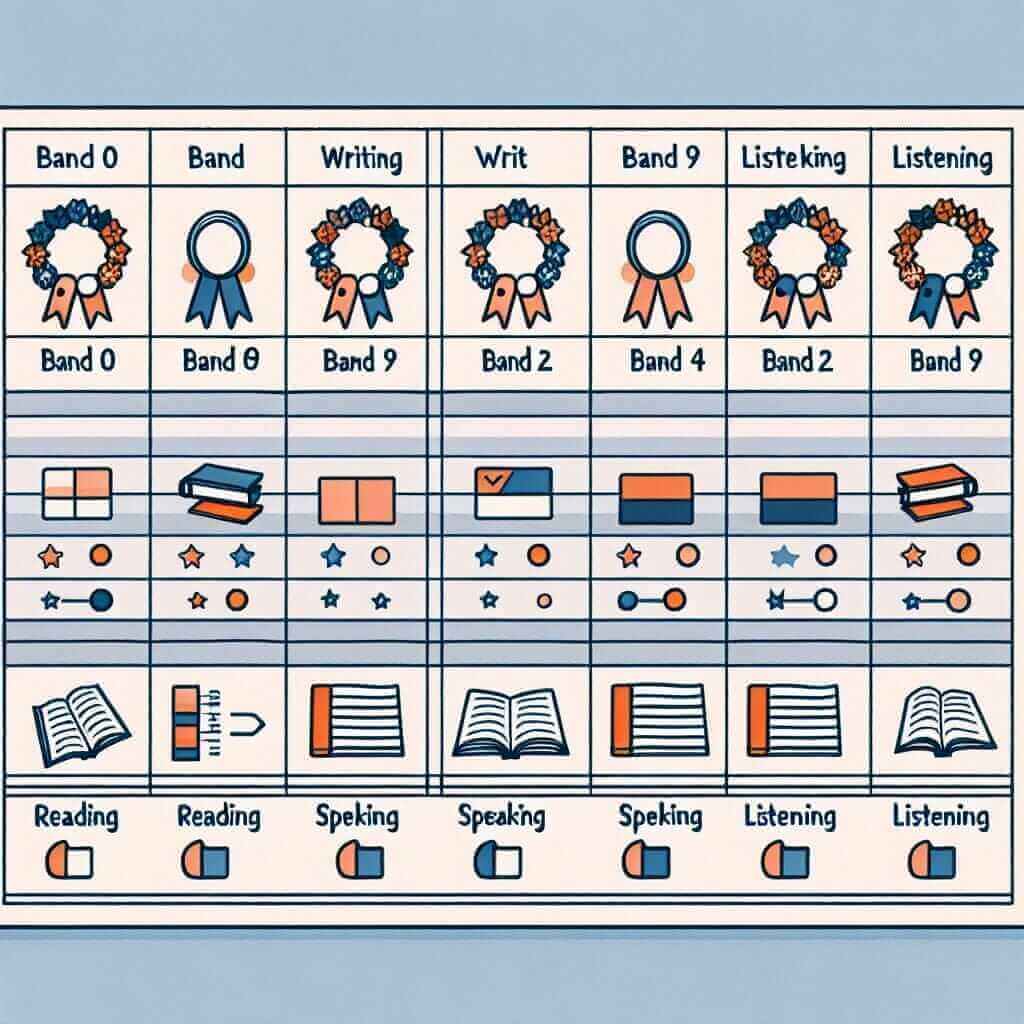Achieving an IELTS band score of 8 is a significant accomplishment, demonstrating mastery of the English language. It’s a common goal for many test-takers, particularly those aiming for higher education or professional opportunities abroad. This comprehensive guide will delve into the intricacies of elevating your IELTS score from a 7 to an 8, providing you with actionable strategies and insider tips to excel in each section of the exam.
Understanding the Band 8 Threshold
Before diving into strategies, it’s crucial to grasp what distinguishes a band 8 candidate. A band 8 signifies that you are a “very good user” of English, exhibiting the following traits:
- Fluency and Coherence: You can speak and write with considerable fluency, connecting ideas logically and using a wide range of cohesive devices.
- Lexical Resource: Your vocabulary is extensive and sophisticated. You employ a broad range of words accurately and naturally, with minimal repetition.
- Grammatical Range and Accuracy: You demonstrate a firm grasp of complex grammatical structures, using them with a high degree of accuracy. Minor errors are infrequent and do not hinder communication.
- Pronunciation (Speaking): Your pronunciation is clear, natural, and easy for the examiner to understand. You use intonation and stress effectively to convey meaning.
Targeted Strategies for Each Section
1. Listening
Focus: Developing the ability to comprehend a variety of accents, track multiple speakers, and understand implied meaning.
Strategies:
- Active Listening Practice: Engage with English audio materials daily – podcasts, documentaries, news broadcasts, and lectures.
- Note-Taking Techniques: Develop efficient note-taking strategies, focusing on keywords and key information.
- Practice Tests: Familiarize yourself with different question types and practice under timed conditions.
Example: In Section 3 of the Listening test, you might encounter a discussion between students about a university project. Practice listening for specific details, like project deadlines or individual responsibilities.
2. Reading
Focus: Improving reading speed, mastering skimming and scanning techniques, and interpreting complex texts.
Strategies:
- Time Management: Practice reading passages within the allocated time (20 minutes per passage).
- Vocabulary Enhancement: Expand your vocabulary through reading diverse materials and utilizing vocabulary-building resources.
- Practice with Different Question Types: Familiarize yourself with various question types, such as multiple choice, matching headings, and sentence completion.
Example: In the Reading section, you might encounter a text about a historical event. Practice identifying the main idea, supporting details, and the author’s opinion.
3. Writing
Focus: Crafting well-structured essays with clear arguments, using a wide range of vocabulary and grammar, and demonstrating error-free writing.
Strategies:
- Planning is Key: Before writing, brainstorm ideas and create a clear essay outline.
- Developing Supporting Arguments: Use relevant examples and evidence to support your main points.
- Vocabulary and Grammar: Incorporate a diverse range of vocabulary and complex grammatical structures accurately.
- Proofreading: Always proofread carefully for any grammar, spelling, or punctuation errors.
Example – Task 2 Essay:
Topic: Some people believe that the best way to improve public health is by increasing the price of unhealthy food. To what extent do you agree or disagree?
Sample Band 8 Introduction:
The escalating prevalence of diet-related health issues has ignited debate regarding the role of government intervention in shaping dietary habits. While increasing the cost of unhealthy food products may seem like a logical solution, its effectiveness in promoting public health is debatable. This essay will argue that while price manipulation can be a contributing factor, a multifaceted approach encompassing education and improved access to healthy options is paramount.
Example – Task 1 Report Writing:
Focus: Accurately and concisely summarizing and describing visual data (graphs, charts, diagrams) using appropriate vocabulary and grammar.
Strategies:
- Data Interpretation: Practice analyzing and understanding different types of visual data.
- Structure and Organization: Use a clear and logical structure for your report, including an introduction, overview, and body paragraphs.
- Language of Comparison and Contrast: Master the language needed to compare and contrast data, describe trends, and highlight significant features.
 IELTS Band Score Chart
IELTS Band Score Chart
4. Speaking
Focus: Speaking fluently and coherently, using a wide range of vocabulary and grammar accurately, and demonstrating natural pronunciation and intonation.
Strategies:
- Practice Regularly: Engage in conversations with English speakers as often as possible.
- Expand Vocabulary and Grammar: Actively work on incorporating new words and grammatical structures into your speech.
- Record and Analyze: Record yourself speaking and analyze your performance for areas of improvement in fluency, vocabulary, and grammar.
Example: In Part 2 of the Speaking test, you might be asked to describe a memorable event. Practice using descriptive language, vivid vocabulary, and clear pronunciation to engage the examiner and showcase your language skills.
Common Mistakes to Avoid
- Overusing memorized templates: While templates can be helpful for structure, strive for originality and flexibility in your language.
- Neglecting weaker areas: Identify your weaknesses and dedicate more practice time to those specific areas.
- Ignoring time management: Practice under timed conditions to simulate the actual exam experience.
Conclusion
Achieving an IELTS band score of 8 is an ambitious but achievable goal. By understanding the assessment criteria, employing targeted strategies for each section, and learning from common mistakes, you can significantly enhance your language skills and boost your overall score. Remember, consistent effort, focused practice, and a positive mindset are essential ingredients for success on the IELTS exam.


